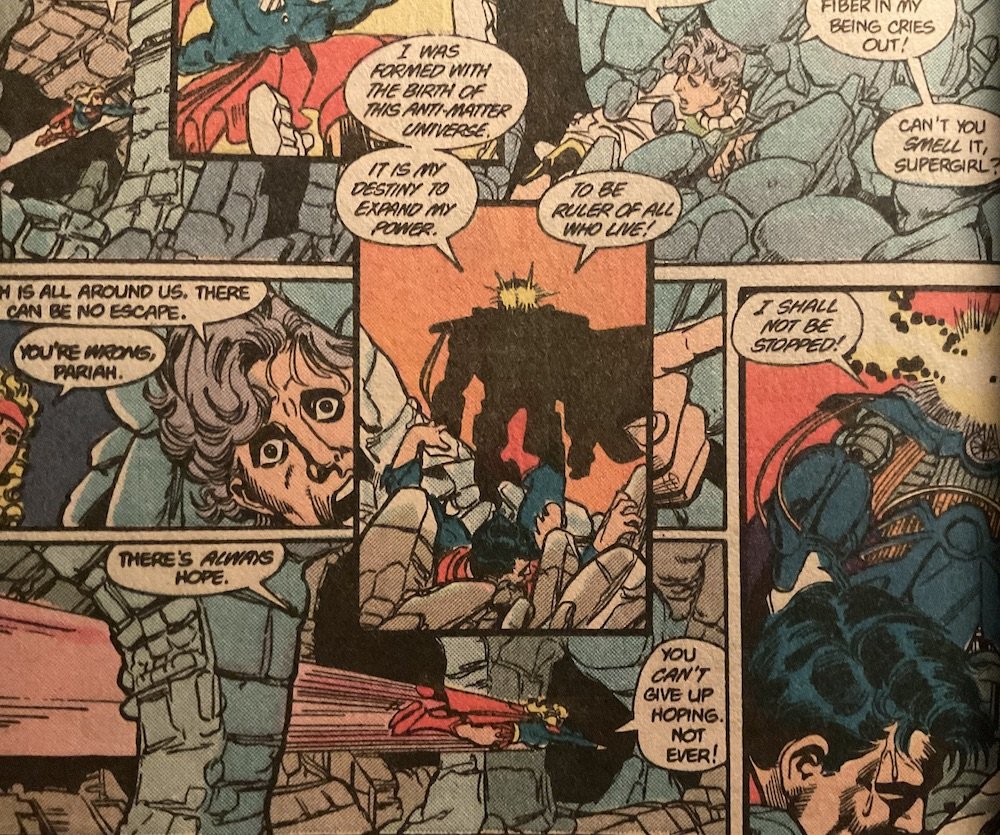CRISIS ON INFINITE EARTHS, No. 7 (Wolfman / Pérez, Ordway, Giordano; DC, 1985)
Every Wednesday morning, I make a blind pull from Siri's (randomized) choice of one of the 20 alphabetically-organized shortboxes that constitute my comics collection, (re-)read it, write about it, and publish whatever emerges. Earlier installments live here.
(Box06): Pleasant surprise, this one: a chance to revisit a single issue of something I'd read only in trade and rather recently at that. And, while my hope that I could read CRISIS as more than "a gorgeously illustrated historical document with too many one-note action figures" remains elusive, I did, nonetheless, sense a humanity missing in most of the rest of the series (a portent of a shift in storytelling priorities in the post-CRISIS world?): the iconic cover, of Superman holding Supergirl's lifeless body still packs a punch; I can only imagine the impact seeing that had on the reader as it stared back at them from the racks.
While he rightly receives plaudits for his rendering of spectacle and universe-shattering narrative turns, Pérez has a unique and unmatched ability to both illustrate said universe-shattering for our eyes and through the eyes and expressions of the characters experiencing it: he brings the anguish, the fear, and the rage to life, pouring it off of every page, especially in the issue's final, unforgettable pages. Similarly - and perhaps it's because I (re)read it out of context with the other eleven issues – I sensed a desperation on the part of the heroes that I didn't feel in other issues: maybe it was always there and my initial, overwhelmed and trade-paperbacked reading missed it or maybe this was the issue that it all, indeed, turned. Interesting that hundreds of worlds had died in issues previous but that it took one iconic death to hammer the stakes home.
Brings up a note: in my eventual re-read of CRISIS, I'm going to do it via single issues and not in trade. Want to see if this approach lends a different experience and makes me see what I was missing – the weight, the history-shattering stakes, the humanity – in my first go-round. If this issue is any indication, I have a feeling that it will.

